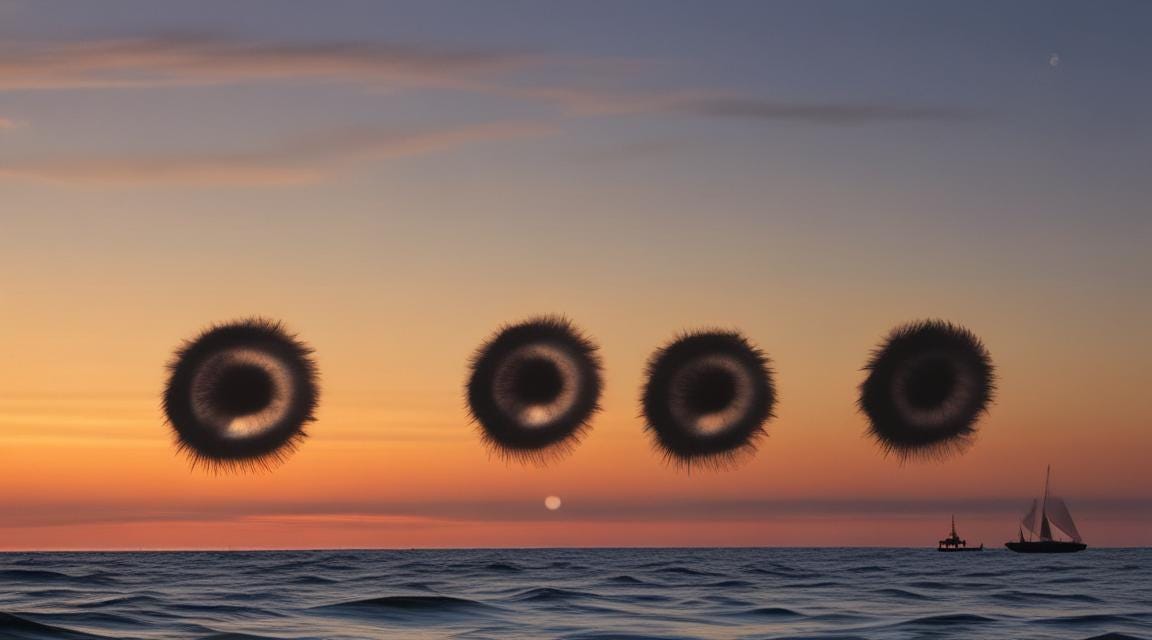Tabitha sat at the two-person round table in James Harbash’s tiny eat-in kitchen, staring into the ceramic cup cradled in her hands. The mug was filled to the brim with black coffee, dark and aromatic, precisely as she typically preferred. But that preference had unmistakably changed.
“This may be the biggest disappointment thus far,” Tabitha said. “This ten-year-old body has a ten-year-old tongue that recoils at the bitter taste of coffee. Yet my mind is that of a fifty-year-old with a severe caffeine addiction. I want to like this, Dr. Harbash, but — no offense — it tastes horrible.”
She took a sip.
“And yet I keep drinking it, thinking it will get better,” she said.
“Maybe it’s time to pick up a different habit,” James said. He took a drink from his own mug. “But I’ll stick with this one.”
“I’ve been watching all these experts on television,” Tabitha said, changing the subject.
“They’re hard to avoid.”
“All these people who haven’t a clue about what happened. It’s infuriating.”
“Becca Watts,” James mused as he slowly shook his head. “You actually saw the whole thing?”
“From the parking lot. But it came from inside the building.”
“It’s hard not to be jealous,” James said. “I worked my entire life to develop this technology.”
“None of this would have happened without you.”
“Oh.”
“Oh no, that’s not what I meant,” Tabitha said. “Oh, that’s terrible. I’m so sorry, Dr. Harbash. You know that’s not what I meant. This isn’t your fault.”
“I know, dear.”
“I didn’t mean that at all.”
“We’re all full of conflicting thoughts these days,” James said. “I wish I could have seen it, but I’m angry what I worked for was used this way.
“It should never have happened,” Tabitha said. “What you worked for was for the good of everyone. But what happened was absolutely terrifying.”
James leaned forward in his seat.
“Tell me again how it all played out.”
Tabitha described the entire scene of arriving with Frankie, Sam, and Drake. Of Sam being sucked into the vortex of blackness while scrambling and screaming in utter futility as he attempted to escape the back seat of her car. She described the bright lights inside the building and the shattering glass as it imploded upon itself, swallowing everything.
“The last thing I remember,” she said, “was feeling a million pinpricks on my face.”
“Pinpricks?”
“Like static electricity,” Tabitha explained. “It was just a moment, and then the gravitational pull grabbed hold of me like a vise. And that was it. Blackness. Just nothing. And then here I was, ten years old again.”
“And me alive.”
“I’ve tried contacting the news but can’t reach anyone. I think we should make our way to New York.”
“We’re already in Chicago. Why wouldn’t we go to one of the stations here?”
“This is global news,” Tabitha said, pointing to the television playing silently in the living room directly connected to the small kitchen. “Everyone they’re paying attention to is in New York.”
“And what will you even tell them?”
“We’d tell them who caused this,” Tabitha said. “We’d explain what really happened.”
“And then what?” James asked.
Tabitha crossed her tiny arms across the flatness of her chest. She hated how all her dresses now hung awkwardly, making her feel like he was wearing drapery. She uncrossed her arms again and lay them flat upon her lap. Even after several days, she still couldn’t figure out how to hold herself comfortably.
“I feel you’re being intentionally difficult here,” Tabitha said.
“I’m not at all being difficult,” James said. “Pragmatic, maybe. I mean, I understand completely what you’re suggesting here, but so what?”
“So what?” Tabitha asked incredulously. “Seriously?”
“Yes, seriously,” James said, nervously tucking his shirt tighter. He, too, struggled to fit back into himself. “So we tell them Becca Watts managed to create a wormhole using the LHC. But then what?”
“Well, then we mobilize. We find her. We…I don’t know…start work toward replicating what she did.”
“For what purpose?” James asked.
“To reverse it, Dr. Harbash.”
“To reverse it,” James repeated. “So you’d go back to you being you. And I’d go back to not being me.”
The two stared at each other from across the small table. Tabitha ran her hands over the fabric of her dress.
“Or maybe there’s some other solution.”
“Setting that aside, Tabitha, there are other pragmatic issues to consider. We are now at a period of time when we were just beginning to understand the potential of our work, but we hadn’t actually developed much of its foundations: the applications, the programs, the robotics, and the superconducting electromagnets. It took years beyond this one in which we find ourselves to develop all of that.”
“But we now have the knowledge that wasn’t available then. Between you and me. We reassemble the team.”
“What team? You yourself said those two colleagues you trusted most likely didn’t survive.”
Tabitha again fell silent and stared into her coffee cup. It was still nearly as full as when their conversation began.
James felt more than a little ridiculous for the scolding tone he heard in his voice. This little girl in front of him was not actually a little girl. This was one of the most enormously intelligent people he’d ever known. And yet here she was, trapped in this body, most likely feeling more anger, frustration, and conflicted emotional distress than he himself could possibly ever know.
James had never married nor indulged in a material lifestyle other than the plentiful bookshelves he lined with tomes he procured at antique bookstores around the world. He rarely bought new clothes until his penchant for pastries forced him to. Short of this, his life was little changed amidst this traversal of time and space.
But now Tabitha — who’d also never married — was not only trapped in a younger body but also faced the potential loss of the many remaining years of her far-reaching scientific career that had previously been ahead of her. She’d imagined — and worked toward — astronomic advances in transdimensional travel. She’d allowed herself to daydream and ponder the possibility of even perhaps playing a role in the actual travel herself, of being written into history books not just for her scientific breakthroughs but for her actual adventures in transdimensional space.
All of this had been taken away from her, as well.
Silence weighed heavily upon the room. Tabitha felt her throat constrict, her eyes sting with the threat of tears.
“I’m sorry,” James said. “I didn’t mean to sound so harsh.”
“We can fix this,” Tabitha said. “Somehow.”
“Hawking says a wormhole was just a one-way passage. One of his latter theories was that if humans got sucked into a black hole, they could escape somewhere else but would never be able to return to their original universe.”
“I read that, too,” Tabitha said.
“I have a hard time seeing beyond that reality.”
“But what if we were to create an entirely separate situation with a completely separate wormhole?” she said.
“What are you suggesting?”
“We don’t try to travel through whatever it was that swallowed up the world the first time. What if we create something completely new?”
James’s eyes suddenly widened as he looked beyond Tabitha and into his living room. He stood and stepped away from the table.
“Look at this,” he told her.
On the living room television, a reporter stood at the end of Navy Pier near Streeterville in northern Chicago, just a few blocks from James’s apartment. The reporter waved his arms animatedly as he screamed into a microphone. Suddenly, the camera zoomed outward. Tabitha and James stood in disbelief, watching as five large black circles pulsed and vibrated over the water of Lake Michigan behind him.
“Maybe we won’t need to create anything at all,” James said.







Hey Greg!
Maybe "like she was" not "like he was" below?
Tabitha crossed her tiny arms across the flatness of her chest. She hated how all her dresses now hung awkwardly, making her feel like he was wearing drapery.